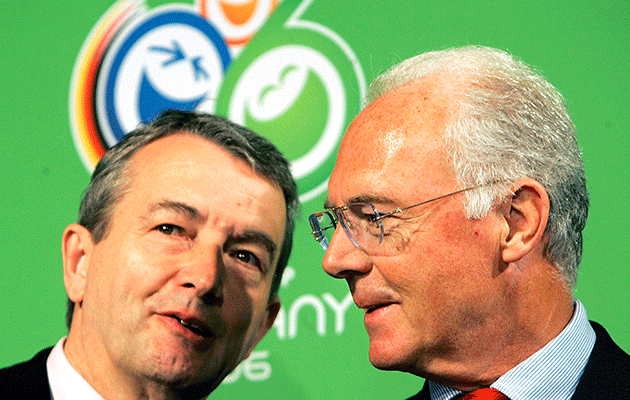Former German federation president Wolfgang Niersbach has been let off more lightly than he may have feared by the ethics committee of world football governing body FIFA.
The investigatory chamber had recommended a two-year ban and fine for Niersbach for his role in the German 2006 World Cup cash wrangle but he ‘escaped’ with a one-year suspension and fine.
Niersbach, 65, is a member of the FIFA Council and the executive committee of European federation UEFA. He is likely to maintain these positions pending the outcome of appeals to the FIFA appeal committee and then the Court of Arbitration for Sport.
By then the one-year ban will be close to expiry and he would then be technically clear to carry on in helping run the game as if nothing had happened.
The ethics action concerns mysterious payments in and out of the German federation’s accounts both before and after the award of the finals under circumstances which were controversial even at the time in July 2000.
Niersbach was communications director of the 2006 bid and organising committees. He later became general secretary and chief executive of the DFB before retiring on a lucrative pension which ‘freed’ him to take over the presidency from the Theo Zwanziger.
Last autumn Niersbach resigned as DFB president ahead of the ethics committee opening its investigation in March into both him and the roles played by former 2006 bid then organising officials Franz Beckenbauer and Theo Zwanziger. Also under investigation are former DFB officials Helmut Sandrock, Horst R Schmidt and Stefan Hans (who has sued the DFB for wrongful dismissal).
Niersbach has always denied any wrongdoing and had described the recommendation from the investigatory chamber as “incomprehensible.”
His case, concerning alleged breaches of four articles of the ethics code, was judged by Alan Sullivan. The Australian was acting in his role as deputy chairman of the adjudicatory chamber of the ethics committee since senior judge Hans-Joachim Eckert is German.
An investigation into the scandal commissioned by the DFB from Freshfields Bruckhaus Deringer claimed that Niersbach had kept colleagues on the DFB board in the dark about the issue and that crucial documents had disappeared.
An ethics committee statement said: “The adjudicatory chamber found that Mr Niersbach failed to report findings about possible misconduct concerning the awarding of the 2006 FIFA World Cup™, including potential breaches of the FIFA Code of Ethics.
“However, the present case did not look into possible breaches in relation to possible acts of bribery and/or corruption with regards to the award of the 2006 FIFA World Cup™, but only evaluated Mr Niersbach’s awareness of the said incidents and his failure to report them to the ethics committee in a timely manner.
“The ethics committee found that the conduct of Mr Niersbach as former president of the DFB and vice-president of the 2006 FIFA World Cup LOC and current member of the FIFA Council and the UEFA Executive Committee constituted a violation of article 18 (duty of disclosure, cooperation and reporting) and article 19 (conflicts of interest).”
The ethics committee made no comment about speculation concerning an informal review of issues concerning Gianni Infantino.
The FIFA president, currently visiting Nigeria along with secretary-general Fatma Samoura, has denied contravening any regulations concerning expenditure in office.







